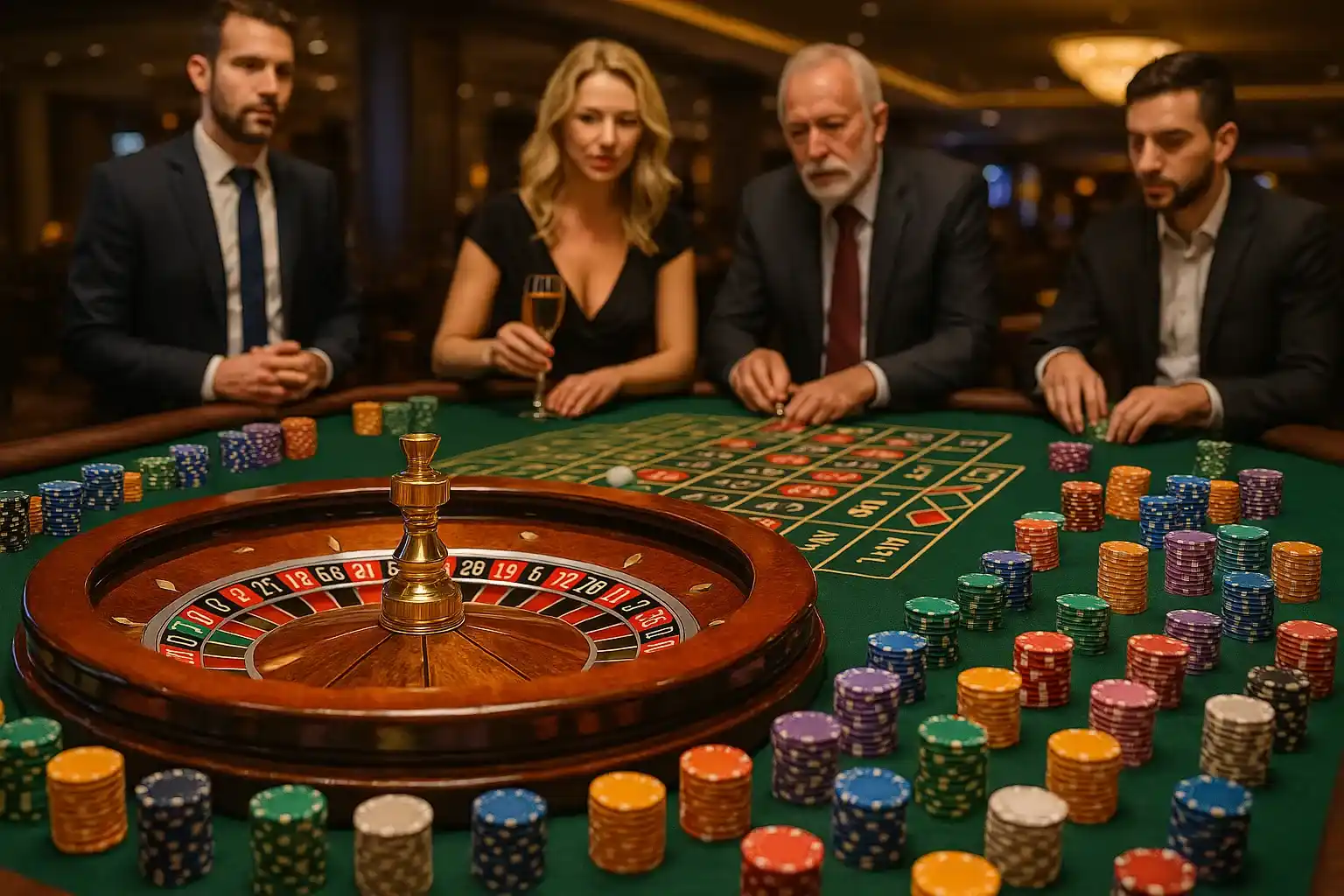Roulette has captivated gamblers for centuries with its simple elegance: a spinning wheel, a bouncing ball, and the promise—or illusion—of fortune. Yet beneath the glimmer of colored chips and the clack of the croupier’s rake lies a mathematical certainty: the house always holds an edge. But does that mean every strategy is doomed to fail? In this post, I’ll walk you through the realities of roulette odds, explore the systems players swear by, and offer insights on where you might find a competitive edge—beyond the wheel itself.
The Immutable House Edge
Every form of roulette—whether you’re lining up on red or black, odd or even, or a single number straight up—carries a built-in advantage for the casino. In European roulette, a single green zero pocket yields a theoretical house edge of 2.70%. Switch to American roulette with an extra double-zero, and that edge jumps to 5.26%. Over thousands of spins, those percentages translate into predictable profits for the casino, regardless of your betting patterns.
European vs. American Roulette
I learned this the hard way during a trip to Las Vegas. I devoured articles touting strategies for American double-zero wheels, only to watch my bankroll erode faster than on a European table. The takeaway was clear: find tables with a single zero whenever possible, and you instantly cut the house edge nearly in half.
Why the Wheel Favors the House
The secret is simple: the zero pockets break the symmetry of the red/black and odd/even bets. When the ball lands on zero (or double-zero), all those outside bets lose. That small fraction of spins is enough to cement the casino’s long-term advantage. No matter how many times red hits in a row, the odds reset every spin.
Strategies People Have Tried
Over the years, players have invented a kaleidoscope of betting systems designed to beat roulette—but few stand up to mathematical scrutiny. At modern betting exchange sites, you can even trade your bets or lay against outcomes, but the fundamental probabilities remain the same.
Martingale and Its Pitfalls
Perhaps the most famous is the Martingale: double your bet after every loss, aiming to recoup all previous losses plus a small profit when you finally win. It sounds foolproof on paper, but in practice, table limits and finite bankrolls throttle you long before you reach that big win.
D’Alembert and Other Progressions
Seeking a gentler approach, some turn to D’Alembert (incrementing bets by one unit after a loss), Fibonacci, or Labouchère. Each system tinkers with bet sizing, but none alters the inherent odds. Over enough trials, you’ll end up paying the house edge on every unit wagered.
Sector Targeting and Physical Bias
Back in the early 20th century, recorders like Joseph Jagger famously identified biased wheels—one slope slightly off, a pocket more likely to catch the ball. Skilled observers logged thousands of spins, then placed big bets on the favored numbers. Today’s modern casinos replace wheels and maintain immaculate tables, but in private clubs or small venues, a slight wheel tilt could still be exploited—if you have the patience and precision to track outcomes.
The Reality of Beating the Wheel
At the end of the day, roulette is a game of chance, not skill. While you can tilt the odds marginally by choosing European over American, or by hunting for a visibly imperfect wheel, the average player will find that the house edge prevails.
Mathematical Impossibility
Probability theory dictates that independent spins cannot be “due” or “overdue.” The idea of a “hot” or “cold” streak is a gambler’s fallacy—every spin resets, unaffected by the last. If you stop believing in inevitable wins after a series of losses, you’ll avoid chasing losses and preserve your bankroll longer.
Real-World Examples
I recall chatting with a veteran player in Monte Carlo who had mastered wheel bias detection decades ago. He recounted nights where he tracked tens of thousands of spins on a single table and walked away with a tidy profit. But when I asked how often he found such a bias today, he chuckled: “Almost never. These days, wheels are swapped, leveled, and inspected too frequently.”
Advancements in Biased Wheel Exploits
Researchers have experimented with ballistics sensors and video analysis to predict ball trajectory fractions of a second before it falls. Such methods might yield slight edges but require expensive gear and risk swift expulsion from casinos.
Alternatives to Traditional Play
If your goal is to engage with roulette-style betting while minimizing the house’s built-in edge, consider offloading risk via exchange platforms. Rather than betting against the casino, you can wager against other players, setting your own odds and staking conditions. These betting exchange sites let you act as both punter and bookmaker—though liquidity and commission fees create their own obstacles.
Trading Roulette Odds
On some exchanges, you can back “red” at 1:1 or lay it at, say, 2.05:1, effectively positioning yourself as the bookie. If you believe the true probability is slightly different from the market odds, you can find value. But remember, the pool of other bettors must match your stake, and the exchange takes a cut.
Commission and Liquidity Challenges
Even if you identify a slight pricing inefficiency, high commissions (often 2–5%) and low liquidity on niche bets can erode potential gains. That said, exchanges represent one of the few venues where you might, in theory, trade your way to profit without relying solely on luck.
Responsible Gambling and Optimal Play
Roulette’s allure lies in its simplicity and rapid pace. But to protect your enjoyment:
Set strict budgets before sitting at the table.
Define session lengths to avoid fatigue-driven errors.
Treat losses as tuition—each spin is a lesson in probability, not a personal slight.
Walk away on a win. Many seasoned players bank a target profit and quit.
I once capped my session at a modest 20% gain; even if the wheel felt “hot,” I honored my rule and pocketed the profit. That discipline, not clever bets, is what separates casual gamblers from those who last in the long run.
Conclusion and Final Thoughts
Can you truly beat the roulette wheel odds? Barring rare historical wheel biases or high-tech prediction equipment, the short answer is no. The house edge, manifest in the single or double zero, ensures that every spin favors the casino. Your best defense is to choose bets wisely, manage your bankroll, and treat each session as entertainment rather than a money-making endeavor. If you yearn for an edge, explore exchange platforms—but never forget that the wheel’s spin remains governed by the laws of probability.








